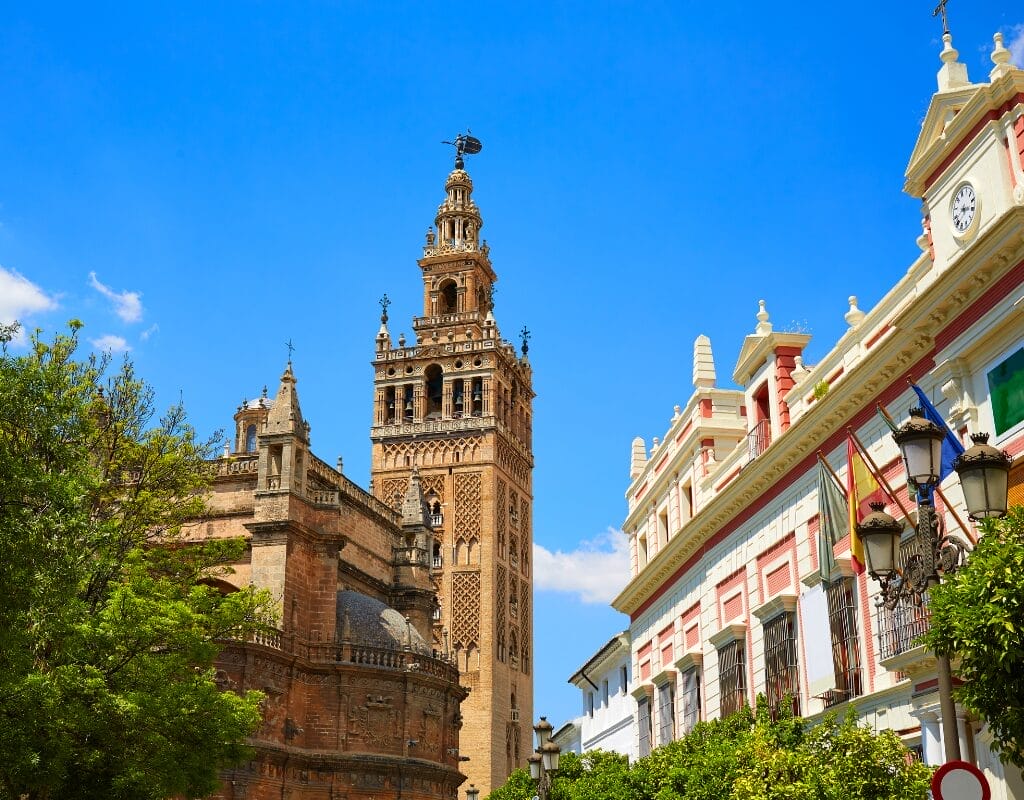Seville Cathedral: A Monument to Faith and Artistry
Seville Cathedral, officially known as the Cathedral of Saint Mary of the See, stands as a colossal testament to Gothic architecture and religious devotion in the heart of Seville, Spain. As the largest Gothic cathedral in the world, it is a UNESCO World Heritage site that not only dominates the city’s skyline but also encapsulates the rich history and cultural fusion that characterize Andalusia. Built on the site of a former Almohad mosque, the cathedral is a symbol of the Christian reconquest and houses treasures that span centuries of Spanish art and history.
A Legacy Carved in Stone
The construction of Seville Cathedral began in the early 15th century, with the intention of demonstrating the city’s wealth and power following the Reconquista. Its scale and splendor were designed to reflect the glory of God and the might of Seville. The cathedral is also the final resting place of Christopher Columbus, adding to its historical significance.
What to See
The Giralda Tower
Originally a minaret for the mosque that stood on the site, the Giralda Tower was incorporated into the cathedral as its bell tower. Climbing the ramps to the top rewards visitors with breathtaking views of Seville.
The Main Altar
The cathedral’s main altar is a masterpiece of Gothic woodcarving, depicting scenes from the life of Christ. It is considered one of the most magnificent altarpieces in the world.
The Royal Chapel
The Royal Chapel houses the tomb of King Ferdinand III of Castile, the conqueror of Seville from the Moors, and a patron saint of the city. The chapel is a fine example of Gothic architecture, adorned with exquisite art.
Columbus’s Tomb
The monument to Christopher Columbus is one of the cathedral’s most visited attractions. It is held aloft by four figures representing the kingdoms of Castile, León, Aragón, and Navarra.
Exploring the Surroundings
Seville itself is a treasure trove of Andalusian culture and history. The Alcázar of Seville, a royal palace originally developed by Moorish Muslim kings, and the Archive of the Indies, which houses invaluable documents relating to the Spanish Empire, are both within walking distance of the cathedral and form part of the UNESCO World Heritage designation.
Personal Tips and Insights
- Best Photo Spots: The Patio de los Naranjos, with its orange trees and fountain, offers a serene perspective of the cathedral and the Giralda Tower.
- Special Events: The cathedral hosts numerous religious ceremonies throughout the year, most notably during Holy Week (Semana Santa), when Seville comes alive with processions and festivities.
Conclusion:
Seville Cathedral is more than a place of worship; it is a monument to the artistic and spiritual aspirations of humanity. Its towering spires, intricate carvings, and solemn tombs invite visitors to explore the depths of history and faith. Whether you are drawn by the allure of its architecture, the stories of its inhabitants, or the tranquility of its sacred spaces, Seville Cathedral offers a profound experience that resonates with the soul of Andalusia.
For more detailed information about Seville Cathedral, including visiting hours, ticket prices, and special events, please visit the official website: Seville Cathedral Official Website.



